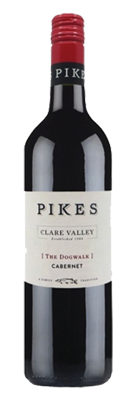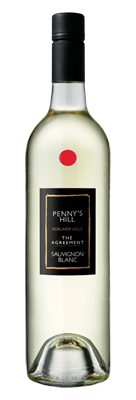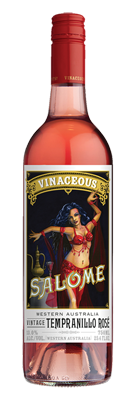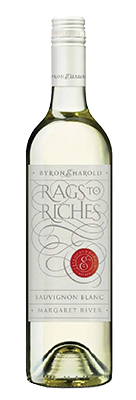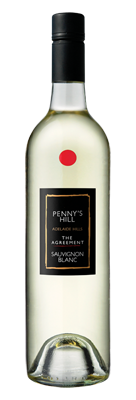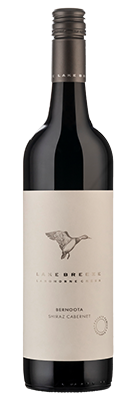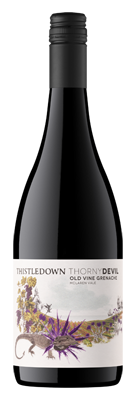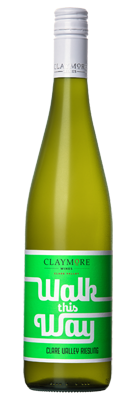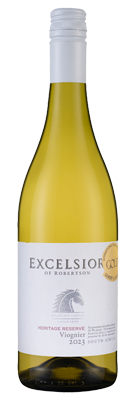Filter by
- New 2024 vintage of the attractive Single Vineyard exclusive from Clare Valley's superb Jim Barry.$35.00 RRPfrom $24.99 when you mix 12+
- Small batch Adelaide Hills Pinot Grigio made by the vastly experienced Ben Riggs.$25.00 RRPfrom $19.99 when you mix 12+
- 93pt Clare Cab: "Easy drinking, charming, fresh-feeling... cracking drink for the bucks" (Halliday).$26.00 RRPfrom $23.99 when you mix 12+
- "Superbly composed" (Wine Orbit) 96pt Shiraz – "a freight train of intensity..."(Halliday)$65.00 RRPfrom $62.99 when you mix 12+
- Alluring 90pt, Great Value Tempranillo rosé from the dynamic Vinaceous Wines.$22.00 RRPfrom $18.99 when you mix 12+
- A French classic – fine Chablis of finesse and old-vine intensity from the excellent Dampt estate.$60.00 RRPfrom $54.99 when you mix 12+
- Well-balanced, generously fruited McLaren Vale Shiraz from the Curtis family winemakers since 1973.$150.00 RRPfrom $99.99 when you mix 12+
- Very nicely poised Chardonnay, with citrus and cashew, from the region of Orange$35.00 RRP$31.99 when you mix 12+
- $22.99 RRPfrom $15.99 when you mix 12+
- "Fabulously aromatic" (Wine Orbit) Margaret River Sauvignon with several hgh point scores.$32.00 RRPfrom $27.99 when you mix 12+
- Thrillingly fresh and zesty SSB from one of Australia’s oldest family wineries.$18.00 RRPfrom $12.99 when you mix 12+
- Attractive colour, generous full fruit flavour – 9.5% alcohol!$27.00 RRP$20.99 when you mix 12+
- $30.00 RRPfrom $21.99 when you mix 12+
- $30.00 RRPfrom $21.99 when you mix 12+
- “Splendidly fruited and inviting” (Wine Orbit) Adelaide Hills Sauvignon with several 90-94pt scores.$26.00 RRPfrom $24.99 when you mix 12+
- One of the Clare Valley's most iconic Rieslings with multiple scores of 93-95pts!$28.00 RRPfrom $23.99 when you mix 12+
- “Rich, luscious…” 93pts, Great Value popular classic from Langhorne Creek’s fabulous Lake Breeze.$22.00 RRPfrom $20.99 when you mix 12+
- Pretty "long and layered" 93pt old vine Grenache from specialists of the grape!$36.00 RRPfrom $34.50 when you mix 12+
- Steve Grimley's lavish McLaren Vale Malbec, aromatic with red fruits and musk.$25.00 RRP$18.99 when you mix 12+
- "Effortless drinking", 92pt blend from master of biodynamics David Paxton$25.00 RRPfrom $21.99 when you mix 12+
- 93pts Clare Valley Riesling with “excellent fruit purity” (Wine Orbit) from dynamic Claymore.$22.00 RRPfrom $17.99 when you mix 12+
- Introducing a rare white treasure of northern Italy – luscious and mineral-edged.$40.00 RRPfrom $29.99 when you mix 12+
- Beautifully expressive, fine red Burgundy from an exceptional vintage and this legendary winemaker$85.00 RRPfrom $79.99 when you mix 12+
- Fresh, vibrant Viognier from Johann Stemmet at South Africa’s ancient, top-quality Excelsior Estate.$26.00 RRPfrom $18.99 when you mix 12+
Wine FAQs
What is vegetarian wine?
Although wine is made from fermented grapes, it isn’t always vegetarian-friendly. Although grapes are the main ingredient in wine, animal-based products are often used during the winemaking process to clarify and stabilise the wine, before it is bottled. However, there are alternative products that can be used for this, allowing for the production of vegetarian-friendly wines.
Why is wine not vegetarian?
Wine isn’t always vegetarian, and that’s down to the ‘fining’ process. This clarifies wine to remove any impurities or suspended solids that can impact its clarity and stability. Winemakers typically use animal-derived products to do this, and that can make a wine not strictly a vegetarian drink.
The substances don’t remain in the wine – they are removed along with the particles they help to clear out. Depending on the type of fining agent use, the resulting wine may not be suitable for vegetarians.
Traditional fining agents can include:
Gelatin – derived from animal bones and connective tissues
Isinglass – made from fish bladders
Egg whites (Albumin) – used particularly in red wines
Casein – a protein derived from milk.
If either of the first two are used, the wine is not vegetarian.
If any of the above are used, the wine is not vegan.
What’s the difference between vegan and vegetarian wines?
Rather than traditional fining agents such as gelatin and isinglass, vegan wines are made using alternative agents.
These can include:
Activated charcoal
Silica gel (a form of silicon dioxide)
Pea protein
Bentonite (a type of clay with strong absorptive properties)
While a vegetarian diet involves eating plant-based foods and avoiding meat and fish products, some vegetarians eat eggs and milk. Wine can be included in a vegetarian diet as long as the fining agents used are also suitable for vegetarians.
As fining agents aren’t classified as ingredients and, therefore, are not listed on a wine’s label, you may wish to choose a wine labelled as vegan to be sure of its suitability.
How do you know if a wine is vegetarian?
Look for a wine labelled as vegetarian or bearing a vegetarian symbol or logo. Occasionally, wineries may even specify the fining agents they’ve used in their winemaking process online.
On our website, you can check the information section of the wine description to see if a wine is vegetarian.
Or you can simply browse the wines on this page.
Do vegetarian wines taste better?
How a wine tastes is influenced by many factors, principally the grape variety used, the soil and climate in which grapes are grown, winemaking techniques and how the wine is aged.
The same is true of vegetarian red wine and white wine.
Traditional animal-derived fining agents and their vegetarian alternatives are used to clarify and stabilise wine – not to impart flavour. They are used in small amounts and are removed from the wine along with the impurities they clarify.
Consequently, the choice of fining agent usually has a minimal impact on the taste of the wine.
Some winemakers choose not to fine or filter their wines at all. These wines might present different flavours compared to conventionally produced wines, but this is related to the overall winemaking philosophy and methods, not specifically whether the wine is vegetarian.
Is vegetarian wine popular in Australia?
Vegetarian wine is becoming more popular in Australia as consumers become more aware of the impact their choices have on their health and the environment. This has led to a rise in demand for vegetarian products, including wine. Some people prefer vegetarian wine due to ethical concerns about the use of animal-derived products in the winemaking process.
Australia’s thriving wine industry has recognised and supported this trend by producing more wines using vegetarian-friendly methods.
How can I pair vegetarian wine with food?
No vegetarian dish would be complete without a delicious vegetarian wine to pair with it.
Pairing vegetarian wines with food follows the same rules as traditional food and wine pairings. Your focus should be on matching the wine’s characteristics with the flavours and textures of the dish. For example, a crisp, zesty Sauvignon Blanc pairs wonderfully with a fresh, crunchy green salad or a tangy goat cheese tart.
A full-bodied Cabernet Sauvignon with robust tannins and dark fruit notes would work well with a rich, hearty dish like mushroom and lentil stew or vegetable lasagne. The wine provides a delicious balance to the earthiness of these dishes.
Finish off your feast with a glass of late-harvest Riesling paired with a slice of apple strudel – the bright acidity and delicate floral notes of a Riesling would beautifully balance the richness of the dessert. Alternatively, try an Aussie Sparkling wine such as The Black Pig Sparkling White or Howard Vineyard Sparkling Pinot Noir Chardonnay with a tropical fruit Pavlova. The effervescence and vibrant fruit flavours can cut through the sweetness of the meringue and fresh fruit.




